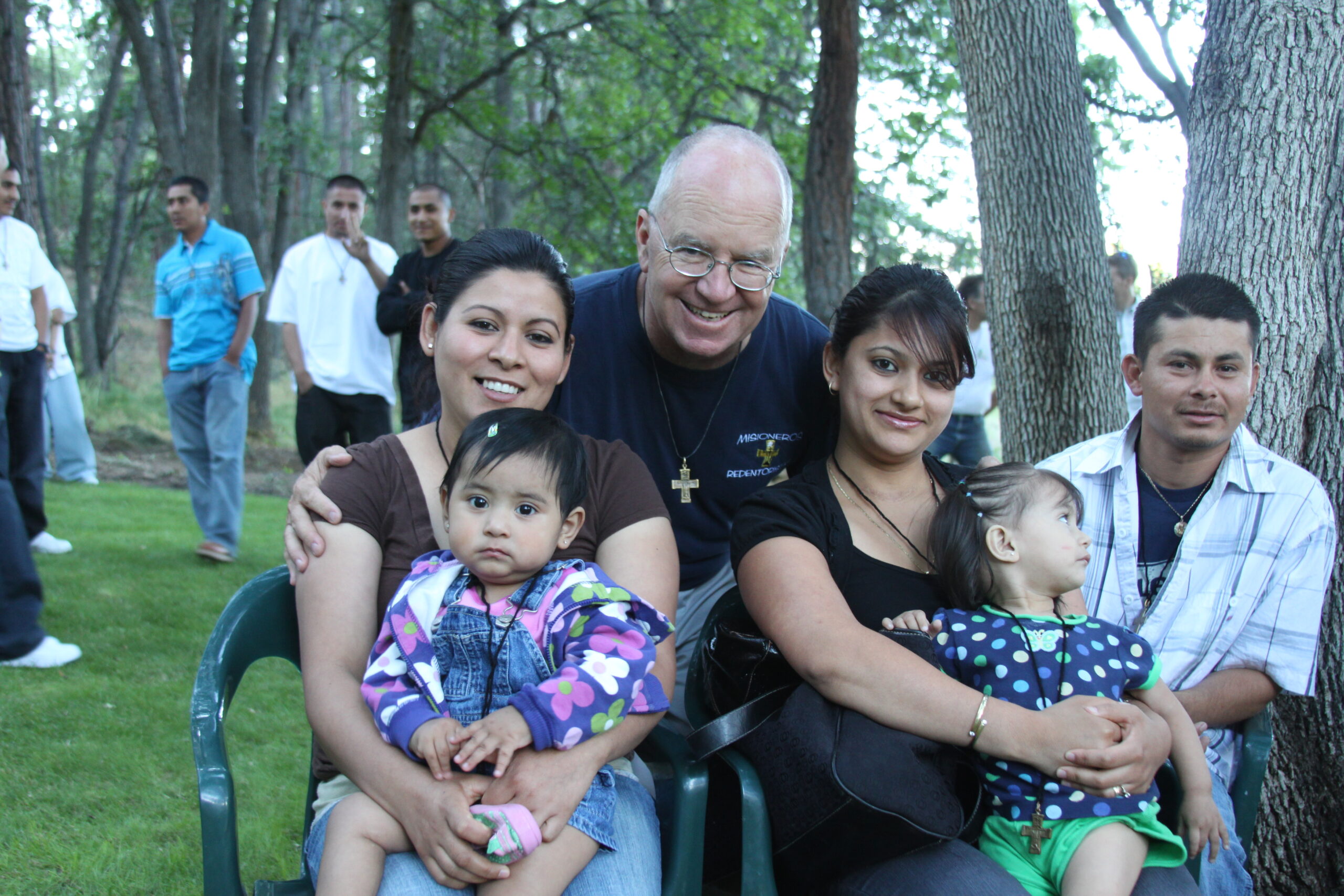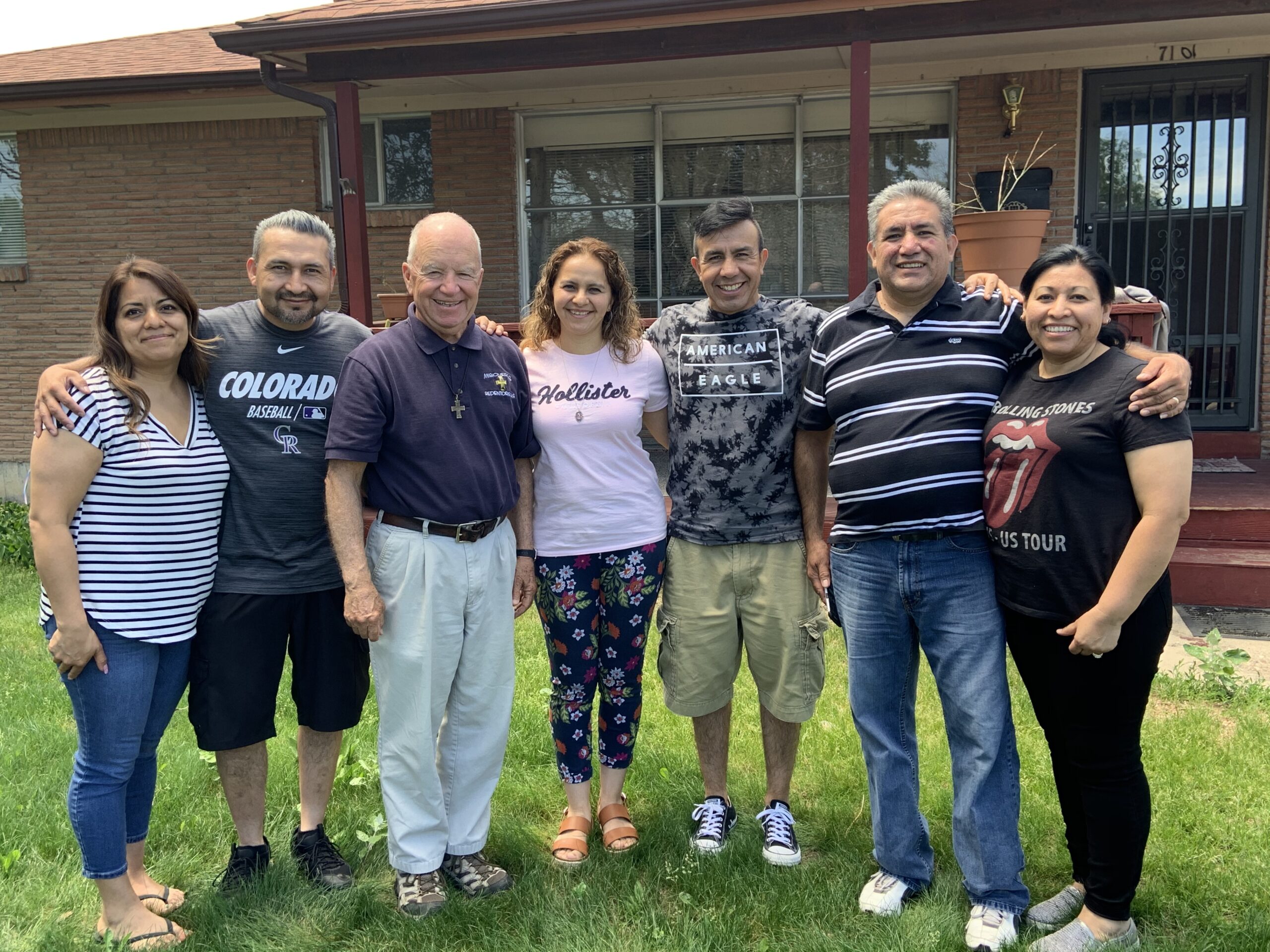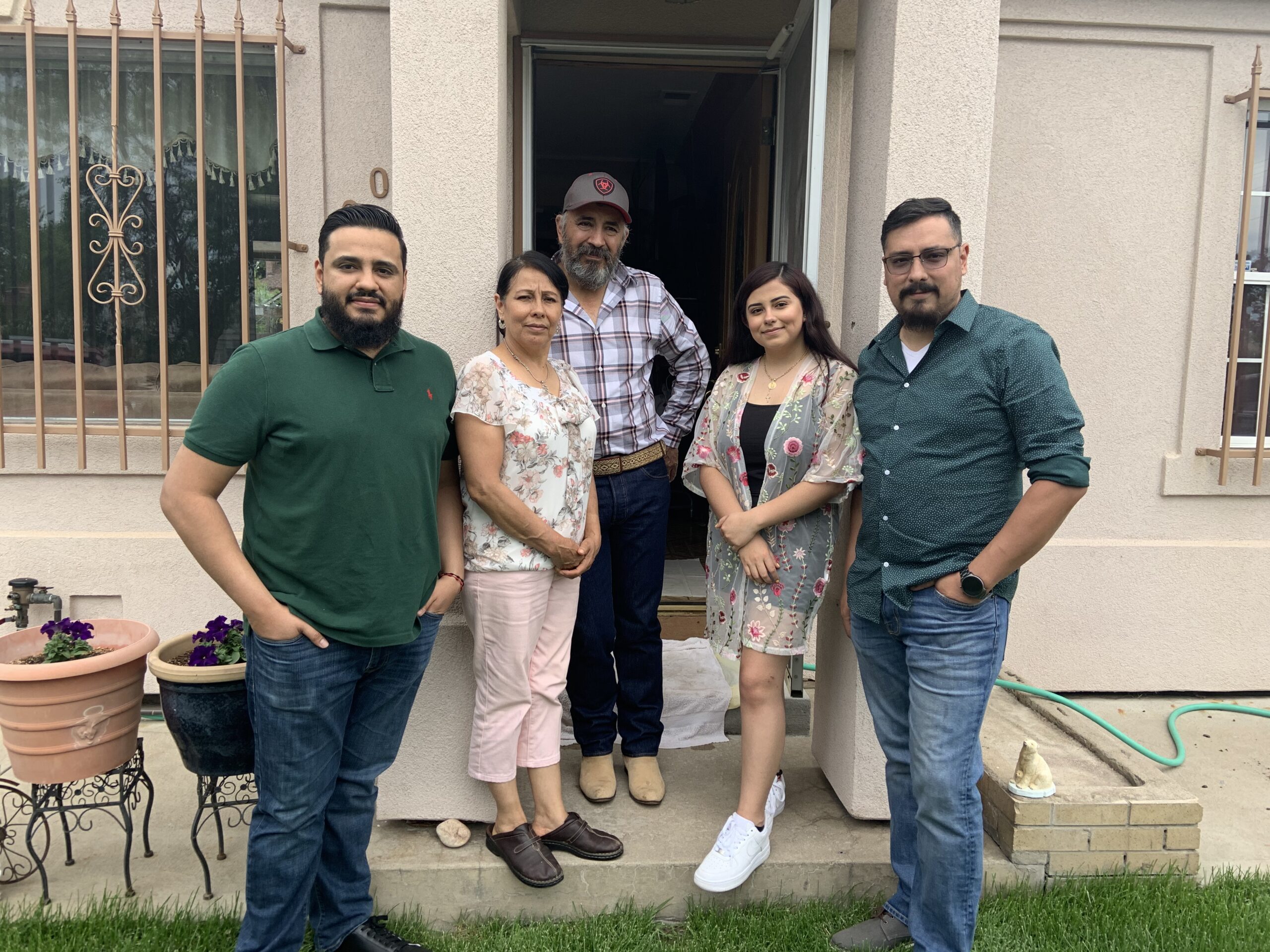5. “Walk with my people” : Las Santas Madres – Saintly Mothers
Las Santas Madres
Para los estadounidenses, el Día de la Madre es el segundo domingo de mayo, pero para América Latina es el 10 de mayo. Reconocemos a las madres por todo lo que hacen en nuestras vidas. Quiero contar una historia que es verdadera, pero que simboliza mi esperanza de revelar un camino hacia un futuro mejor para nuestra Iglesia. Hay personas especiales que nos inspiran con sus vidas. Aquí está la historia de María, pero como cuento la historia, hay muchas Marías. Necesitamos reconocerlas, animarlas y permitirlas mostrar nos el camino hacia un futuro mejor.
María vive en una comunidad de campesinos. Muchos trabajan en las cosechas estacionales a menos de cincuenta millas de donde viven. Hombres y mujeres ingresan a los campos, viñedos y huertos todos los días para poner comida en las mesas de todo el mundo. En muchos hogares hay padres con hijos. Muchas familias tienen una de las mujeres que se ocupa de los niños, mientras que otras van a trabajar en la cosecha. María tiene tres hijos de 10, 7 y 5 años. Mientras que su hermana (dos hijos) y una comadre (la madre de su ahijada) trabajan en el campo, María cuida a los niños. Los recoge por la mañana, les prepara el desayuno, los lleva a la escuela o head start. Mientras los niños están en la escuela, ella limpia las casas de su hermana y su comadre y lava la ropa de las tres familias. Cuando los niños regresan de la escuela, ella les da el almuerzo. Luego hace que los niños recen el rosario con ella. Si están inquietos, puede terminar después de dos o tres décadenas del rosario. Ella ocupa a los niños con tiempo de juego, cuentos y camina afuera hasta que sus padres regresan del trabajo.
María cuida a los niños para que otros adultos puedan seguir su trabajo o sus carreras. Su instrucción de los niños en oración y valores fluye naturalmente. La hermana de su parroquia dijo: “¿Podemos hacer que María prepare a los niños para la Primera Comunión como parte de su cuidado de niños todos los días?” Pronto esa parroquia tuvo más niños siendo “educados en casa” preparándolos para los sacramentos que el número de niños en el programa parroquial regular para la Primera Eucaristía. Las hermanas descubrieron más Marías cuidando niños mientras los padres se iban a trabajar. Algunos de ellos eran abuelos, otros parientes y la práctica común de que uno de los miembros de la familia se ocupara de los niños se convirtió en una parte habitual de la instrucción religiosa en la parroquia.
En María, animo a los ministerios parroquiales a reconocer a los catequistas naturales de nuestras comunidades migrantes. Las Marías que enseñan a los niños a tener una relación con Dios pueden hacerlo de formas tan sencillas. Usando a María como ejemplo, las hermanas de California demostraron la creatividad y el ingenio de usar a la familia para enseñar a sus hijos los caminos de la fe.
Feliz Día de la Madre a todas las madres.
Sigo buscando ayuda
Ayúdame a preparar un programa sacramental para niños con necesidades especiales y tiempo limitado de preparación.
Por favor comparte conmigo tus recuerdos. Escribir a: [email protected]
Las santas madres – Saintly Mothers
For Americans, Mother’s Day is the second Sunday of May, but for Latin America it is May 10. Continuing recognizing mothers for all they do in our lives, I want to tell a story that is true, but is symbolic of my hope to reveal a path to a better future for our Church. There are special people who inspire us by their lives. Here is the story of María, but as I tell the story, there are many Marías. We need to recognize them, encourage them and allow them to show us ways to a better future.
María lives in a community of farm workers. Many of the people work seasonal harvests within fifty miles of where they live. Men and women enter the fields, vineyards and orchards everyday to put food on tables around the world. In many homes there are parents with children. Many families have one of the women who cares for the children while others go to work in the harvest. María has three children, ages 10, 7, and 5. While her sister and comadre (the mother of her goddaughter) go to work in the fields, María cares for the children. She gathers them in the morning, prepares breakfast, takes them to school or to head start. While the children are in school she cleans the houses of her sister and comadre and does the laundry for all three families. When the children come home from school, she gives them lunch or a snack. She then has the children pray the rosary with her. If they are restless, she may finish after two or three decades of the rosary. She occupies the children with play time, story telling and walks outside until their parents come home from work.
María cares for the children so that other adults may pursue work or careers. Her instruction of the children in prayer and values flows naturally. The sister at her parish, said, “Can we have María prepare the children for First Communion as part of her babysitting the children each day?” Soon that parish had more children being “home schooled” preparing them for the sacraments than the number of children in the regular parish program for First Eucharist. The sisters discovered many more María’s caring for children while parents went to work. Some of them were grandparents, other relatives and the common practice of having one of the family caring for the children, became a regular part of religious instruction in the parish.
In María, I encourage parish ministries to recognize the natural catechists of our migrant communities. The Marías who teach children to have a relationship with God can do so in such simple ways. Using María as an example, the sisters in California showed the creativity and resourcefulness of using the family to teach their children in the ways of faith.
Happy Día de la Madre to all mothers.
I am still looking for your ideas
Help me prepare a sacramental program for children with special needs and limited time for preparation.
Please share with me your memories. Write to: [email protected]
Oh Jesús, tú nos llamas: “Síganme”. Bendice, Señor, a todos los que acogen tu llamado. Puede que el camino no sea fácil, pero tenemos la confianza de que todo es posible si caminamos contigo. Que este viaje nos abra los ojos a las maravillas de tu amor por nosotros. Oramos por toda tu gente, por todos los creyentes e incrédulos, por los líderes y seguidores. Oramos por la sanación, el perdón, la compasión, la justicia y la paz. Oramos para que, al seguirte, nosotros también podamos ser pescadores de hombres. Bendícenos en nuestro viaje.
O Jesus, you call us, “Come after me.” Bless, O Lord, all who welcome your call. The path may not be easy, but we have confidence that all things are possible if we walk with you. May this journey, open our eyes to the wonders of your love for us. We pray for all your people, for all believers and unbelievers, for leaders and followers. We pray for healing, for forgiveness, for compassion, for justice, for peace. We pray that as we follow you, we too can be fishers of men. Bless us on our journey.





